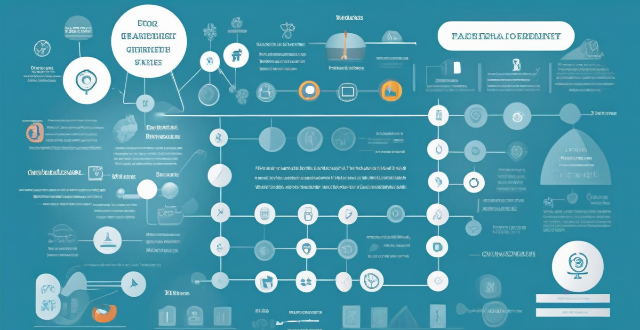Risk management is a crucial component of any organization's strategy, and poor practices can lead to financial losses, legal issues, reputational damage, operational disruptions, and negative impacts on employee morale and productivity. It is essential for organizations to implement effective strategies to mitigate these potential consequences and ensure their long-term success and sustainability.

Potential Consequences of Poor Risk Management Practices
Risk management is a crucial component of any organization's strategy. Poor risk management practices can lead to various negative consequences, which can significantly impact the organization's operations, financial stability, and reputation. In this answer, we will discuss the potential consequences of poor risk management practices in detail.
1. Financial Losses
One of the most direct consequences of poor risk management practices is financial losses. These losses can occur due to various reasons, such as:
- Unexpected Expenses: Failure to identify and mitigate risks can lead to unexpected expenses, such as legal fees, fines, or compensation for damages.
- Reduced Revenue: Poor risk management can also result in reduced revenue, as customers may lose trust in the organization's ability to deliver quality products or services.
- Decreased Investment: Investors may be hesitant to invest in an organization with poor risk management practices, leading to decreased investment opportunities and potential growth.
2. Legal Issues
Poor risk management practices can expose an organization to legal issues, such as:
- Breach of Regulations: Failing to comply with industry regulations can result in legal actions, fines, or even closure of the business.
- Lawsuits: If an organization fails to manage risks properly, it may face lawsuits from customers, employees, or other stakeholders affected by the organization's actions or inactions.
3. Reputational Damage
Poor risk management practices can harm an organization's reputation, which can have long-lasting effects on its operations and success. Some ways in which reputational damage can occur include:
- Loss of Customer Trust: Customers may lose trust in an organization that fails to manage risks effectively, leading to a decline in sales and customer loyalty.
- Negative Media Coverage: Negative media coverage about an organization's poor risk management practices can further damage its reputation and deter potential customers or investors.
4. Operational Disruptions
Poor risk management practices can also lead to operational disruptions within an organization, such as:
- System Failures: Failure to identify and address technical risks can result in system failures, leading to downtime and productivity losses.
- Supply Chain Disruptions: Poor risk management in supply chain processes can lead to disruptions, affecting the organization's ability to produce and deliver products or services on time.
5. Employee Morale and Productivity
Poor risk management practices can negatively impact employee morale and productivity, as employees may feel unsafe or uncertain about their roles and responsibilities within the organization. This can lead to increased turnover rates, decreased job satisfaction, and reduced overall productivity.
In conclusion, poor risk management practices can have severe consequences for an organization, including financial losses, legal issues, reputational damage, operational disruptions, and negative impacts on employee morale and productivity. It is essential for organizations to implement effective risk management strategies to mitigate these potential consequences and ensure their long-term success and sustainability.